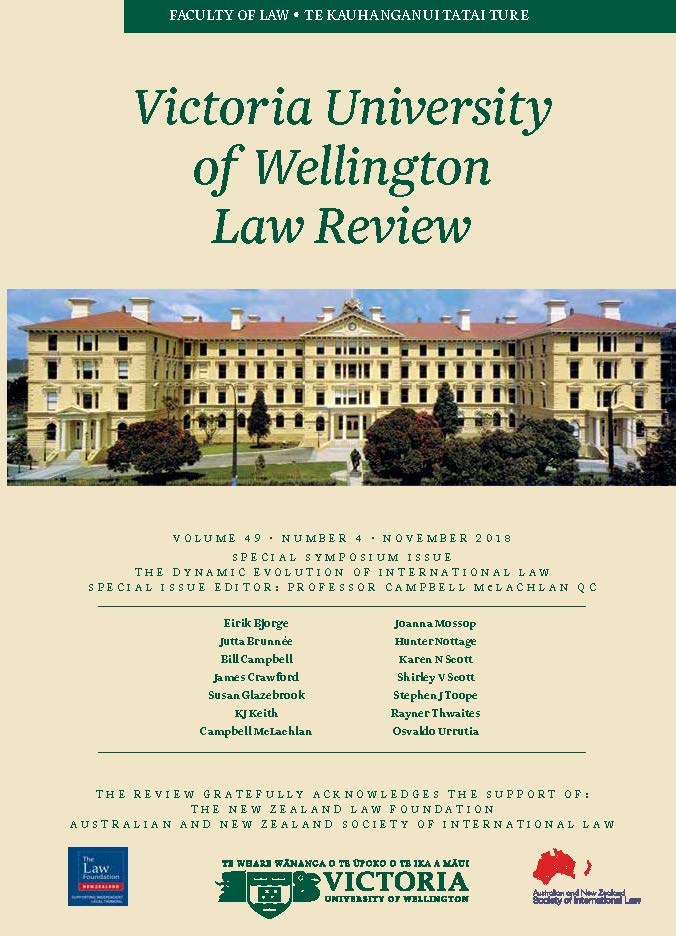Can we Make the Oceans Greener? The Successes and Failures of UNCLOS as an Environmental Treaty
DOI:
https://doi.org/10.26686/vuwlr.v49i4.5341Abstract
At the conclusion of the United Nations Convention on the Law of the Sea (UNCLOS) in 1982, there was considerable optimism that the Convention would usher in a new age of marine environmental protection. This article argues that, while UNCLOS did contain important innovations for marine environmental protections, key structural problems prevented the Convention from fulfilling more optimistic predictions of success. Concepts such as freedom of the high seas and exclusive flag state jurisdiction as well as the lack of an effective institution with competence over the law of the sea generally have impeded progress. Instead, states have relied on incremental development to seek improvements in the law. The article evaluates whether two recent developments will progress the goal of marine environmental protection. First, a number of recent international judicial decisions interpreting treaty and customary principles of international law have clarified and extended state environmental obligations. Second, negotiations for a new treaty on the protection and sustainable use of biodiversity in areas beyond national jurisdiction offer hope that gaps in UNCLOS might be filled.
Downloads
Downloads
Published
How to Cite
Issue
Section
License
Authors retain copyright in their work published in the Victoria University of Wellington Law Review.


